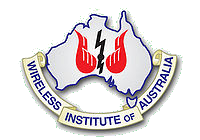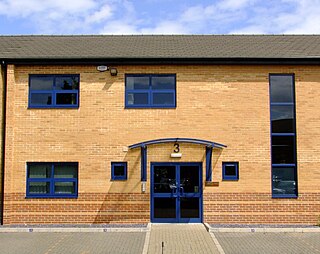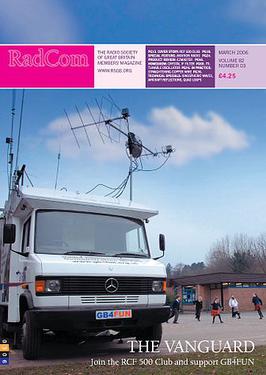Related Research Articles

The Wireless Institute of Australia (WIA) was formed in 1910, and is the first and oldest national amateur radio society in the world. It represents the amateur radio operators of Australia as the AR "peak body" in dealings with the Australian Communications and Media Authority (ACMA), the authority under the government of Australia that administers communications within and external to Australia. The WIA publishes a bi-monthly journal for its membership called Amateur Radio. The organisation is the national society representing Australia in the International Amateur Radio Union.

Radio Amateurs of Canada (RAC), known in French as Radio Amateurs du Canada, is the national association for Amateur Radio in Canada. It is a not-for-profit membership association with headquarters in Ottawa, Ontario, Canada, representing the interests of Amateur Radio all across Canada. Speaking on behalf of Canadian Radio Amateurs, RAC provides liaison with government agencies and carries the Amateur voice about regulatory and spectrum issues to the discussion table with government and industry leaders, nationally and internationally.

The Radio Society of Great Britain (RSGB) is the United Kingdom's recognised national society for amateur radio operators. The society was founded in 1913 as the London Wireless Club, making it one of the oldest organisations of its kind in the world. Through its work, it represents the interests of the UK's 80,000 licensed radio amateurs in the United Kingdom and certain dependent territories of the United Kingdom at the International Amateur Radio Union, acting as a medium for communication between the licensed operators and the UK government.
2MT was the first British radio station to make regular entertainment broadcasts, and the "world's first regular wireless broadcast" for entertainment. Transmissions began on 14 February 1922 from an ex-Army hut next to the Marconi laboratories at Writtle, near Chelmsford in Essex. Initially the station only had 200 watts and transmitted on 700m (428 kHz) on Tuesdays from 20:00 to 20:30.

An amateur radio station is a radio station designed to provide radiocommunications in the amateur radio service for an amateur radio operator. Radio amateurs build and operate several types of amateur radio stations, including fixed ground stations, mobile stations, space stations, and temporary field stations. A slang term often used for an amateur station's location is the shack, named after the small enclosures added to the upperworks of naval ships to hold early radio equipment and batteries.
The New Zealand Association of Radio Transmitters (NZART) is a non-profit organisation of amateur radio enthusiasts in New Zealand. It represents New Zealand amateur radio operators nationally and internationally. NZART is a founding member of the International Amateur Radio Union. It is an association of individual members, however those members are encouraged to form local branches.
The South African Radio League (SARL), formerly known as the South African Radio Relay League (SARRL), is a non-profit organisation representing the interests of amateur radio enthusiasts in South Africa. The SARL advocates on behalf of its membership and all licensed amateur radio operators in South Africa as the representative of amateur radio to the South African government. This has included the promotion of deregulation and simplification of the amateur radio service, and expansion of the number of amateur radio operators in Southern Africa. The SARL publicises and promotes the role of amateur radio in society, and promotes the use of amateur radio in schools as an entry point into the fields of science and technology. The SARL publishes a magazine called Radio ZS twelve times a year. SARL is the national Member Society representing South Africa in the International Amateur Radio Union and is a Member Society in IARU Region 1.

RadCom is the monthly magazine published by the Radio Society of Great Britain and is provided to all corporate members of the society. Typically 100 pages, it includes a mixture of news, theory, construction and technical articles of interest to the amateur radio community. RadCom is the largest circulation amateur radio-related magazine in the United Kingdom.

Vintage amateur radio is a subset of amateur radio hobby where enthusiasts collect, restore, preserve, build, and operate amateur radio equipment from bygone years, such as those using vacuum tube technology. Popular modes of operation include speaking over amplitude modulation (AM), and communicating using Morse code through continuous wave (CW) radiotelegraphy. Some enthusiasts have interest in owning, restoring and operating vintage military and commercial radio equipment such as those from 1940s to 1960s. Some undertake to construct their own gear, known in ham slang as homebrewing, using vintage parts and designs. A number of amateur radio clubs and organizations sponsor contests, events, and swap meets that cater to this specialized aspect of the hobby.

The British Amateur Television Club (BATC) is the world's largest television technology club; it has members in the UK and all around the world and is a non-profit making club run by an elected committee of volunteers for the benefit of its members. Membership is open to all who are interested in television, amateur or professional, indeed the club has many members who work for major broadcasting companies.

The Mumbai Amateur Radio Society or MARS is an amateur radio club based in Mumbai, India. The club was founded on 7 August 2000 by a group of 25 active hams. Since then it has grown to over two hundred members and is the largest such club in the metropolis. MARS is a registered 80G tax-deductible non-profit organization.
Amateur radio or ham radio is practised by more than 22,000 licensed users in India. The first amateur radio operator was licensed in 1921, and by the mid-1930s, there were around 20 amateur radio operators in India. Amateur radio operators played an important part in the Indian independence movement with the establishment of illegal pro-independence radio stations in the 1940s. The three decades after India's independence saw only slow growth in the number of operators until the then Prime Minister of India and amateur radio operator, Rajiv Gandhi (VU2RG), waived the import duty on wireless equipment in 1984. Since then, numbers have picked up, and as of 2007, there were more than 16,000 operators in the country. Amateur radio operators have played a vital role during disasters and national emergencies such as earthquakes, tsunamis, cyclones, floods, and bomb blasts, by providing voluntary emergency communications in the affected areas.
The Irish Radio Transmitters Society (IRTS) is a national non-profit organization for amateur radio enthusiasts in Ireland. Key missions of the IRTS include promoting amateur radio experimentation and representing the interests of Irish amateur radio operators before Irish and international telecommunications regulatory authorities. In particular, since 2005 in agreement with Communications Regulator (Comreg), the IRTS supports the entire examination process for the Experimenter's Licence including setting, organising, and correcting examinations for the Irish amateur radio license. The organization has no paid employees, and all tasks are performed by volunteers. IRTS is the national member society representing Ireland in the International Amateur Radio Union.

Amateur radio, also known as ham radio, is the use of the radio frequency spectrum for purposes of non-commercial exchange of messages, wireless experimentation, self-training, private recreation, radiosport, contesting, and emergency communications. The term "amateur" is used to specify "a duly authorized person interested in radioelectric practice with a purely personal aim and without pecuniary interest"; and to differentiate it from commercial broadcasting, public safety, or professional two-way radio services.
CUWS may refer to:
The Cambridge University Wine Society is a traditional membership club, one of the Registered Clubs & Societies of University of Cambridge, England, founded in 1792. The society aims to introduce university students to the world of wine through regular tastings during the academic term, and other activities and events. Membership is open to the public.

The Waverley Amateur Radio Society (WARS) is an amateur radio society based in Rose Bay, a suburb of Sydney, New South Wales, Australia which operates under the call sign VK2BV. The society was founded in 1919 and is the oldest continuously licensed amateur radio club in Australia.
Call signs in Asia are rarely used to identify broadcast stations. In most Asian countries, broadcast stations use other forms of identification. Japan, South Korea, Indonesia, the Philippines and Taiwan are exceptions to this rule. Amateur radio stations in India, Pakistan, Korea and Japan are allocated call-signs.
Call signs in Europe are not formally used for broadcast stations.
Call signs in United Kingdom include a three letter country code, and a series of letters and numbers.
References
- ↑ Cambridge University Wireless Society, Cambridge University Students' Union, University of Cambridge, UK.
- ↑ Records of the Cambridge University Wireless Society, Janus Archived 2009-11-16 at the Wayback Machine , Cambridge University Library, University of Cambridge, UK.
- ↑ List of UK Contest Callsigns, Radio Society of Great Britain